Karachi Literature Festival Goes London! Either it was #KLFLondon hashtag on Twitter or a post on Oxford University Press’s Facebook page where they announced KLF’s launch in Royal Festival Hall of London’s Southbank Center as part of their annual Alchemy festival. Unfortunately though, we don’t get literary vibes from Pakistan much and KLF is an exception to that persona of our homeland. But this time, it wasn’t the case and did it make me feel proud, because I, along with many other literature & book-lovers attended Islamabad Literature Festival with full enthusiasm few weeks back.
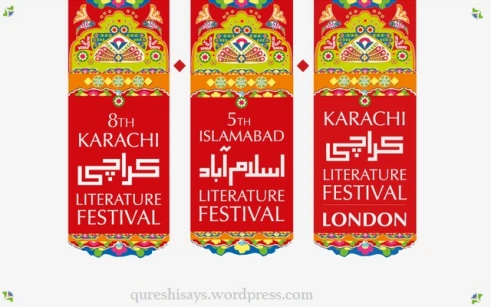
Karachi Literature Festival was founded in 2010 by Ameena Syed and Asif Farruki, now Pakistan’s biggest literary event. It first branched out to Islamabad as ILF in 2013 and now has grown beyond Pakistan on International horizon. KLF London, produced by Oxford University Press, was organized in collaboration with the Southbank Centre, Bloomsbury Pakistan (a research collective from London), and Rukhsana Ahmed. Event brought Pakistani and International writers, authors and scholars under one roof. Event turned out to be very successful w.r.t. public participation. Event tickets were pre-sold and all sessions were jam-packed.
Mohammed Hanif, an internationally acclaimed Pakistani-origin author and journalist formally inaugurated the event by his keynote address. Hanif talked gave unique insights into Pakistan’s history. Guests and speakers were welcomed by Ameena Saiyid, KLF and ILF Founder & Director, Asif Farrukhi, KLF and ILF Founder, and Adrian Mellor, Managing Director, Asia Education, OUP. Pakistan’s High Commissioner to UK, Syed Ibn Abbas also addressed the participants.
Around 70 writers (Pakistani as well as International), scholars, critics, journalists, and artists participated, 20 sessions progressed simultaneously covering a broad range of themes, ideas, and subjects. Sessions were live streamed on Oxford University Press’ official Facebook page.
A separate strand for children which included an immersive theatre piece by Jungly Jadoogars; an animated film by the artist Fauzia Minallah; storytelling by the children’s author, Shahbano Bilgrami; and sing-along songs by the veteran Pakistani musician, Khaled Anam, were also a part of the festival.
Notable sessions from day 1 were ‘Transphobia and Misogyny’, a discussion on legislation around transgenders and women in Pakistan; ‘Reluctant Returners: Migrants, Refugees and Memories of the Homeland’ in which characters and fictions inspired by exile and displacement were explored. ‘Pakistani Renaissance? The Best in Cinema, Reportage, Theatre and Fashion’ with Atiqa Odho, Faris Kermani, designer Maheen Khan, and journalist Cyril Almeida.
Taimur Rahman, Moni Mohsin, and H. M. Naqvi weighed up the challenge of portraying Pakistan’s gender and class divide in ‘Blaming the Elite: Class, Greed, and Gender in Contemporary Pakistan’. Educationists, entrepreneurs, and experts including Farid Panjwani, Ahmereen Reza, Mona Kasuri, and Ameena Saiyid were part of panel discussion titled ‘Madrassas and Montessoris: Are Private Schools Keeping Madrassas at Bay?’.
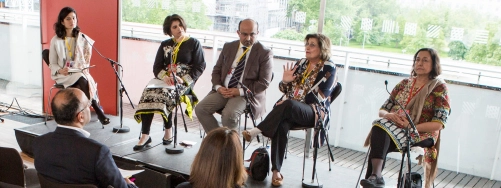

Shuja Nawaz, Maleeha Lodhi, Ishrat Husain, and Victoria Schofield analyzed geopolitical and internal challenges Pakistan is facing in ‘Against All Odds: The Price of Prosperity in Pakistan Today’ . In the session ‘Urdu ki Zid Mai: At Loggerheads: Urdu vs English vs Regional Languages’ Basir Kazmi, Ishrat Afreen, Harris Khalique and Asif Farrukhi discussed if Urdu in Pakistan is under threat from English or the regional languages.
The evening sessions comprised thought-provoking discourses on ‘Good Muslim, Bad Muslim: Diaspora Pakistanis Caught in Post Brexit Hate-Storm’, with Ziauddin Sardar, Farooq Bajwa, and Iftikhar Malik debating the challenges faced by Pakistani diaspora in Europe; ‘Karachi: City of Lights and Gangs’ with Laurent Gayer, Nichola Khan, Mohammed Hanif, Sobia Ahmad Kaker, Omar Shahid Hamid, and Kamran Asdar Ali talking about the battle for Karachi and its resilience despite political conflicts; and ‘Tweeting for Social Change: How Social Media is Influencing the Political Scene’ in which Huma Yusuf, Umber Khairi, and Umair Javed discussed the impact of social media on Pakistan’s political scene.
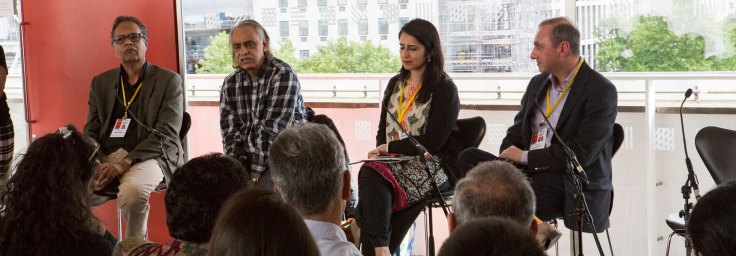
The highlight of the festival was the ‘Satrangi Mushaira’, which was an open mic session for Pakistan’s regional language poets to recite their latest offerings. Another session ‘In Their Own Words: Writers and Poets from Pakistan’, moderated by Muneeza Shamsie, featured poetry and prose readings by writers of Pakistani origin including Imtiaz Dharker, Aamer Hussein, and Zaffar Kunial. In ‘Partition Stories’ Nimra Bucha, Vayu Naidu, Shayma Saiyid, Amrit Kaur Lohia, and Sarah Ansari presented a medley of readings, film clips, recitals, dance and poetry about the Partition of India.

The evening came to a close by a kathak dance performance by Shayma Saiyid and a music concert by Khumariyaan, a Peshawar-based music band known for their fusion brand of Pashtun folk music.
Sponsorship support to the KLF London was provided by Bestway, Arts Council England, Third World Quarterly magazine, Salt n Pepper restaurant, High Commission of Pakistan in London, South Asia Institute of the University of Texas at Austin, and The Pakistan Society.
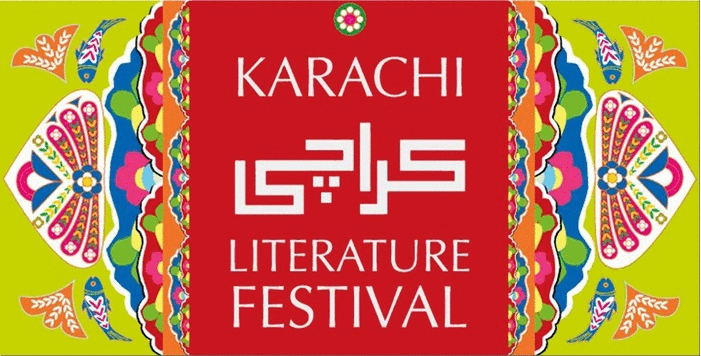
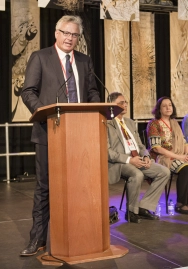
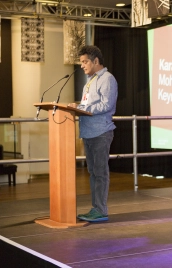
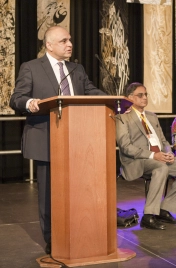
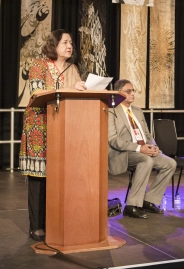
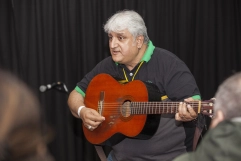
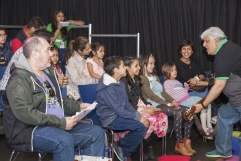
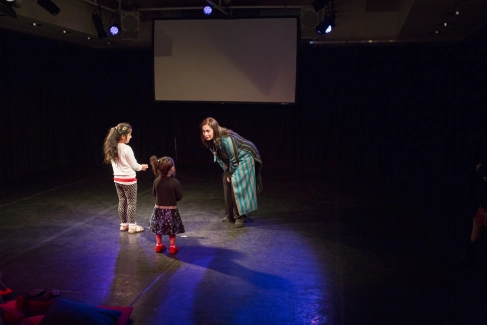
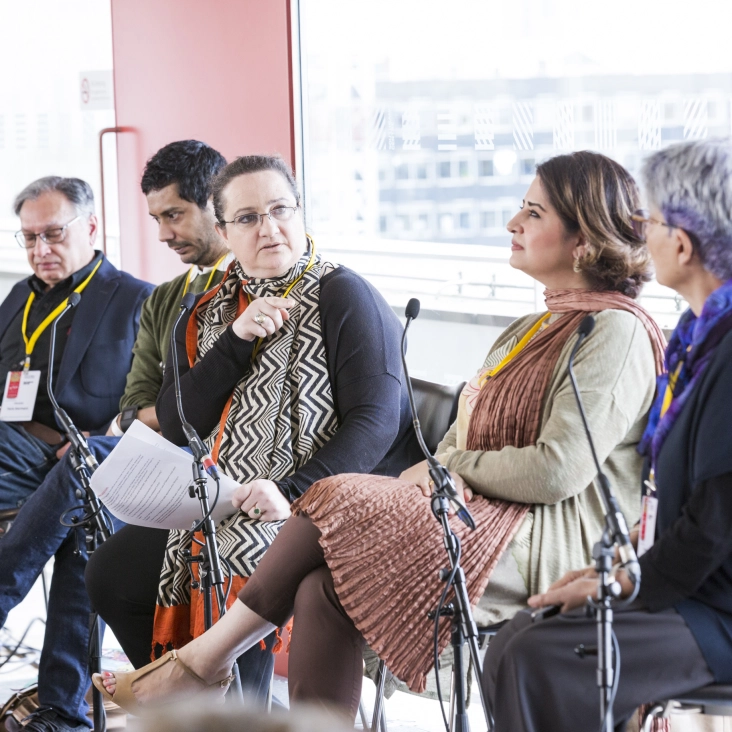
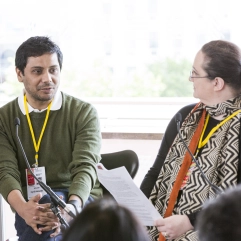
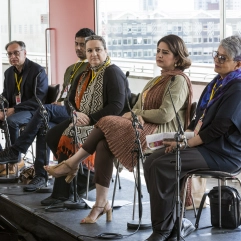
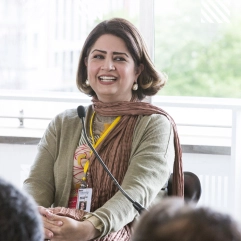
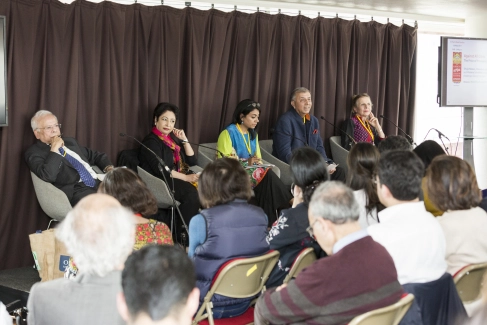
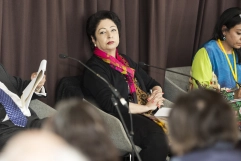
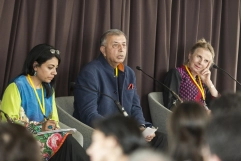
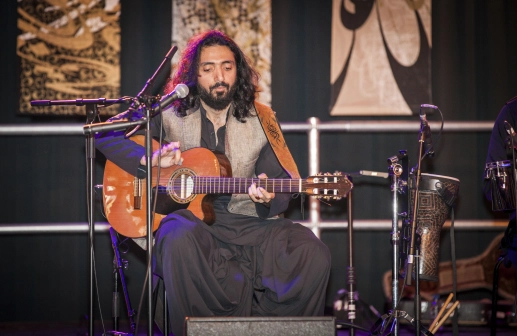
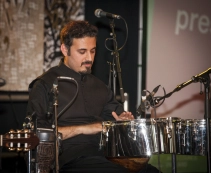
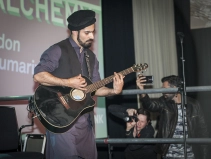
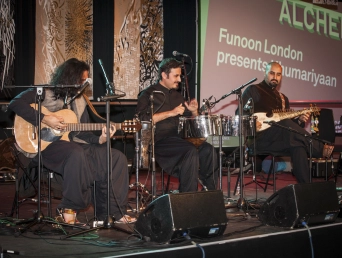
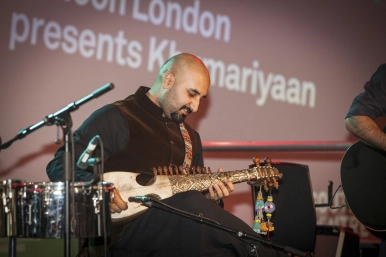
Leave a Reply